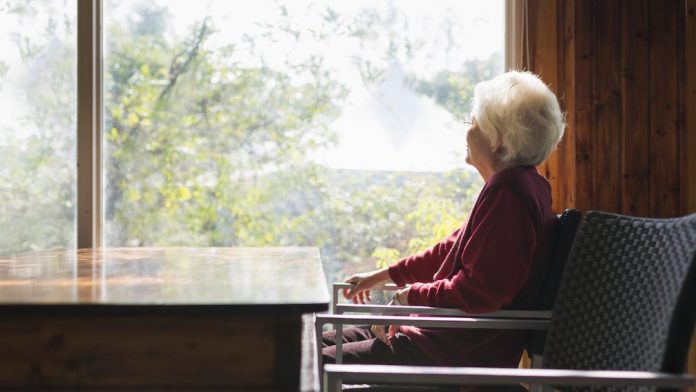A new report from the Boston-based Fenway Institute finds older LGBTQ adults twice as likely to be diagnosed with depression as their straight, cisgender peers. The report also finds this group twice as likely to suffer from injuries over a fall and, though more likely to hold a college degree, more likely to have had difficulty paying for housing or food over the past year.
“These findings are deeply troubling, and point to the need for vigorous enforcement of existing state and federal law prohibiting anti-LGBTQ discrimination, as well as targeted interventions to reduce social isolation among LGBTQ older adults and meet their unique health care needs,” said the report’s author, Sean Cahill, director of health policy research at The Fenway Institute.
“This is a population that has experienced a lot of trauma and its effects are on-going. But they are survivors.”
Sean Cahill, director of health policy research, The Fenway Institute.
Reports a recent Fenway release:
Titled “LGBT Aging 2025: Strategies for Achieving a Healthy and Thriving LGBT Older Adult Community in Massachusetts,” the report is based on data collected during nine listening sessions—five in-person and four virtual—organized between June 2019 and June 2020. The report also contains new information about LGBTQ people age 50 to 75 based on new analyses of public health data from the Massachusetts Department of Public Health and the state’s Executive Office of Elder Affairs.
Problems related to social isolation and the lasting impact of trauma associated with systemic anti-LGBTQ discrimination were raised most frequently at each of the nine listening sessions. LGBTQ older adults who are also Black, Indigenous, and People of Color reported feelings of deep alienation from the LGBTQ community when they experienced racism from White LGBTQ older adults. Long-term survivors of HIV expressed concerns about being able to find doctors skilled in providing HIV care. LGBTQ adults of every race and gender expressed concern about their ability to pay for health care.
The public health data show that as compared with their straight, cisgender peers, LGBT older adults report higher rates of fair/poor overall health. They experienced suicidal thoughts in the past year at four times the rate of their peers, and were more likely to report serious difficulty in concentrating, remember, or making decisions. …
“Although a lot of the information in this report focuses on health risks and disparities, we also found that LGBTQ older adults are resilient, in part, because they’ve had dramatically different life experiences than their straight and cisgender peers,” Cahill added.
“They came of age when same-sex behavior or crossing gender boundaries was subject to imprisonment or institutionalization. Homosexuality was against the law in all 50 states into the early 1960s, and classified as a mental illness until 1973. Many LGBTQ people were shunned by their families. Many LGBTQ elders lost their life partners and social networks to HIV/AIDS. This is a population that has experienced a lot of trauma and its effects are on-going. But they are survivors.”
The report “LGBT Aging 2025: Strategies for Achieving a Healthy and Thriving LGBT Older Adult Community in Massachusetts,” is available online.
Not a subscriber? Sign up today for a free subscription to Boston Spirit magazine, New England’s premier LGBT magazine. We will send you a copy of Boston Spirit 6 times per year and we never sell/rent our subscriber information. Click HERE to sign up!









